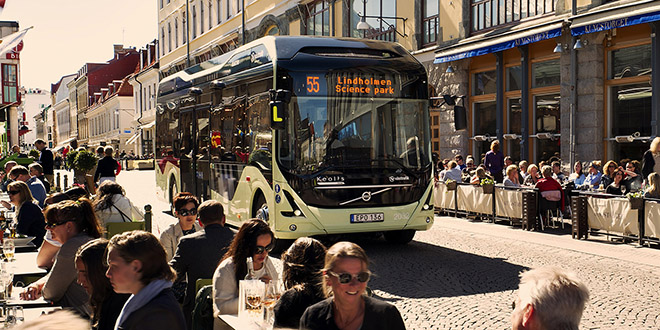It’s indisputable that electric buses can save local transit authorities substantial amounts on fuel and maintenance costs. However, a new analysis conducted by the Volvo Group and the audit and advisory firm KPMG finds that, taking into consideration such factors as noise, travel time and emissions, the total savings may be much higher.
“Standard investment appraisals do not take into account all of the costs that impact society and the environment,” says Niklas Gustafsson, Head of Sustainability at the Volvo Group. “Therefore, to quantify all of the aspects, we have now calculated the monetary value of an electric bus line.”
According to the study, a city with half a million inhabitants and 400 buses would save about 100 million Swedish kronor ($12 million) per year if it replaced its legacy diesel buses with EVs. Among other things, the savings stem from reduced noise and air pollution, which is estimated to reduce health care costs by up to 24 million kronor.
“Electric buses are an excellent example of an innovation that can create substantial societal values,” says Daniel Dellham of KPMG. “By supplementing standard financial analysis with socioeconomic and environmental factors, one arrives at a more complete picture of the investment’s impact on companies and society.”
Volvo has been at the forefront of transit electrification. In June, a new bus line using Volvo electric buses went into service in the company’s home city of Gothenburg.
“The bus line is one of the most modern in the world and interest is incredibly high, not least due to the buses being completely silent and emission-free, and being run on electricity from wind and hydro power,” says Gustafsson.
Source: Volvo Group



















































































